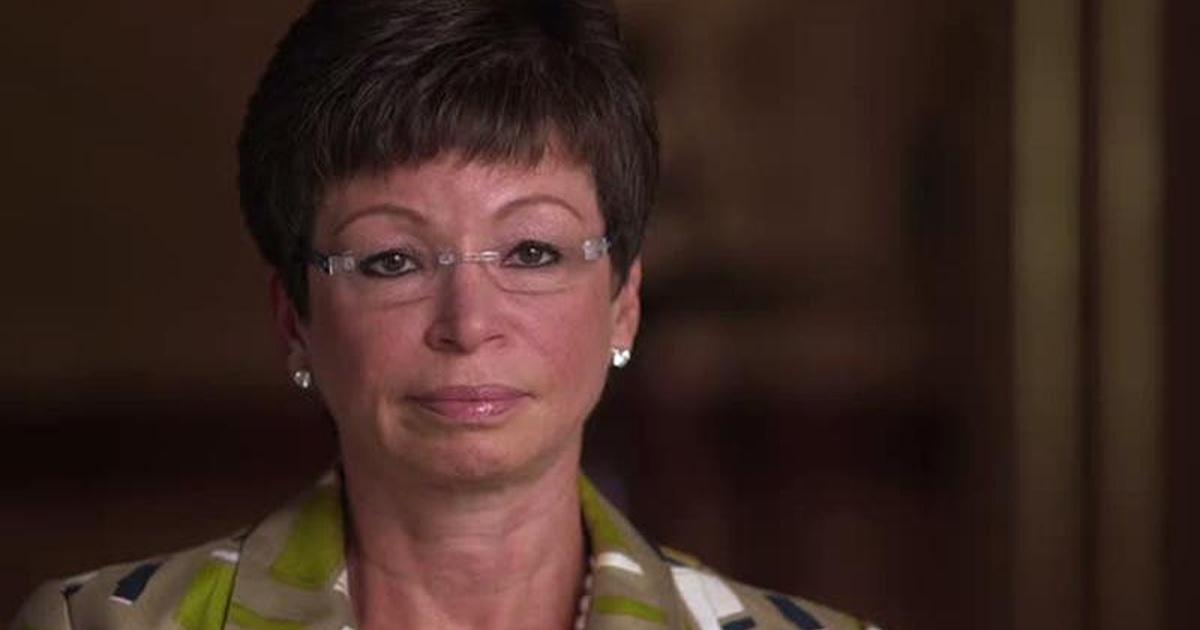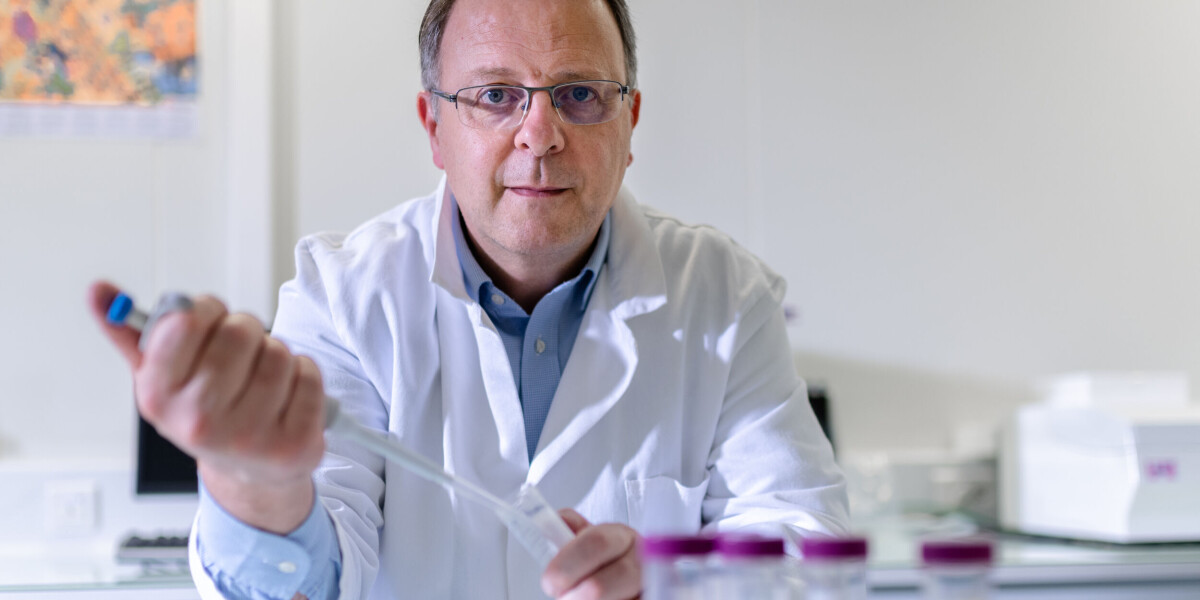
- Select a language for the TTS:
- UK English Female
- UK English Male
- US English Female
- US English Male
- Australian Female
- Australian Male
- Language selected: (auto detect) - EN
Play all audios:
* CHIEF OF STAFF DR. CATHERINE BERNARD STANDS IN AN EXAMINATION ROOM IN THE ASPEN VALLEY HOSPITAL EMERGENCY DEPARTMENT ON THURSDAY, APRIL 9, 2020. Kelsey Brunner/The Aspen Times * DR. GAIL
KING TAKES BLOOD FROM MARSHALL CROUCH IN ASPEN ON FRIDAY, APRIL 10, 2020. Kelsey Brunner/The Aspen Times * DR. PAULA KADISON SITS IN AN EXAMINATION ROOM IN HER OFFICE AT MADISON MEDICAL
GROUP IN ASPEN ON THURSDAY, APRIL 9, 2020. Kelsey Brunner/The Aspen Times * * REGISTERED NURSE TRUDI OLSON-FEAST, LEFT, DRAWS BLOOD FROM CHLOE LAZARD, CENTER, AS SHE HOLDS THE HAND OF HER
BOYFRIEND TRISTAN ANDLINGER TO BE TESTED FOR COVID-19 ANTIBODIES IN ASPEN ON FRIDAY, APRIL 10, 2020. LAZARD IS GETTING TESTED BECAUSE SHE HAD BEEN IN NEW YORK CITY BEFORE COMING TO ASPEN.
Kelsey Brunner/The Aspen Times * REGISTERED NURSE TRUDI OLSON-FEAST DRAWS BLOOD FROM BILL FABROCINI FOR THE SERUM IGGIGM ANTIBODY TEST SPECIFIC TO THE COVID-19 VIRUS IN ASPEN ON FRIDAY,
APRIL 10, 2020. Kelsey Brunner/The Aspen Times * DR. GAIL KING DRAWS BLOOD FROM SUNNI MCBRIDE IN ASPEN ON FRIDAY, APRIL 10, 2020. Kelsey Brunner/The Aspen Times * REGISTERED NURSE TRUDI
OLSON-FEAST, CENTER LEFT, AND DR. GAIL KING, CENTER RIGHT, DRAW BLOOD FROM STEVEN FERRELL, LEFT, AND MARSHALL CROUCH IN ASPEN ON FRIDAY, APRIL 10, 2020. Kelsey Brunner/The Aspen Times Show
CaptionsHide Captions Four people and counting stood at 6-foot intervals in an alley parallel with Main Street. As the afternoon sun beat down on a black canopy tent propped up between
parked cars, each person took their turn, two by two, beneath the covering. They sat in a freshly sanitized chair, held their arm out to one of the two women sporting colorful hair caps and
facemasks and gave a sample of their blood to be tested for COVID-19 antibodies. For the woman wearing the gold mask and multi-colored hair cap, Dr. Gail King, this opportunity wasn’t just a
way for her patients to see if they’d been exposed to COVID-19 — it’s a way to contribute to the community’s understanding of how the pandemic has affected the Aspen area.
------------------------- ------------------------- “How can you do anything if you don’t know who has it and who doesn’t, who is still at risk and who may now be more immune? Until we know
that information, its all one big question mark,” King, a gynecologist, anti-aging and regenerative medicine physician said of COVID-19. As of April 9, King was offering 200 antibody tests —
pre-ordered by locals at $350 each — for the new disease out behind her Aspen Center for Women’s Health practice by appointment. ------------------------- ------------------------- “Now
that newer tests are coming out there’s more capability of other practices like mine that can step up, as long as you take the precautions, and find out that information,” she said. “We all
just have to pitch in.” Over the past month, public health officials, first responders, government staff and elected leaders have collaborated to respond to the COVID-19 outbreak in the
Roaring Fork Valley. But that’s not all of who’s involved. A little less in the limelight yet still a contributing part of this collaboration are local physicians and medical professionals
both within and outside of Aspen Valley Hospital, all working to stay relevant with the most up-to-date research and knowledge on the novel coronavirus, to impart that knowledge to their
patients, and to mitigate COVID-19 and its spread as much as possible. “I call this whole thing surreal,” King said of the pandemic. “What we can do to help changes by the hour, so we’re all
flying by the seat of our pants but we’re all trying to do the right thing.” MITIGATING THE SPREAD On March 8, the first case of COVID-19 was linked to Aspen after an Australian visitor
returned home and tested positive for the novel coronavirus. Thirteen people traveling with the Australian were required to self-isolate in Aspen soon after, triggering a countywide response
to the virus. More than a month later, a Pitkin County Incident Management Team for COVID-19 is in place, major winter and summer events have been canceled, most restaurants and businesses
are dark, locals are being asked to stay at home except for “essential business and travel” and 1,000 COVID-19 antibody tests had been secured by the county for strategic community
distribution. As a result of the drastic lifestyle changes, public health orders and social distancing recommendations issued to help stop the spread of the novel coronavirus locally, Pitkin
County had not experienced a surge in severe COVID-19 cases as of April 13 and no more than two deaths over the five-week period. While that’s a good sign of the work being done by county
officials, it’s also a testament of the work being put in by community members to follow the social distancing rules and requirements, according to Dr. Catherine Bernard of Aspen Valley
Hospital. “Things have changed so much for the public and the community and I don’t know how to lift up the public’s morale more except to say ‘My gosh you’re doing a great job, thank you.
You really are saving people’s lives, probably mine, so thank you,’” Bernard said. Bernard has been a full-time emergency medicine doctor for Aspen Valley Hospital for nearly 18 years.
Bernard said she went into emergency medicine, in part, because of a bad car accident when she was 16 years old, just a few months into having her driver’s license. “I was already very
interested in the human body, biology and how everything worked, but that experience truly made me want to be a doctor and specifically somebody who cared for emergencies,” Bernard said. As
an emergency medicine professional and lead ER doctor, Bernard is used to working in a fast-paced, high intensity environment, often seeing 10 to 12 patients an hour at AVH over a typical
spring break holiday period. But this year, that rate was more like 10 to 12 patients every 24 hours and the ER is moving at a slower pace than usual as staff work to take all the
appropriate safety and sanitary measures to protect themselves and their patients from potential coronavirus infection. “I’m used to running around with 30 to 50 patients in a day and this
year the whole world kind of shut down,” Bernard said. “Basically we’re being very careful about how we screen patients. … Patients take longer to get in the door, they take longer to be
triaged, it takes longer for me to get dressed appropriately and it’s all been a real change.” Things aren’t different for Bernard just in the hospital ER. As an emergency medicine physician
and the president of the AVH medical staff, Bernard has also stepped into a leadership role with the county’s incident management team, helping on a daily basis with response efforts and
with organizing a group of physicians to look at effective COVID-19 tests that could be distributed in Pitkin County and assist public health officials in its response to the crisis. Bernard
has spoken at a few of the weekly community COVID-19 response meetings, and feels Pitkin County’s response to mitigate the local outbreak has been really good so far. On the topic of
COVID-19 testing, Bernard said her direct involvement has to do with getting other physicians involved in learning “all the ups and downs, ins and outs of these new tests coming out.” She
said in a normal situation with more time for tests to be vetted before they hit the market, things would be different. But because the need is urgent and tests are launching with little to
no review, it puts a little more responsibility on local physicians. “The testing issue really is twofold; we have what we’re trying to do for the patients presenting that we need to care
for that the test really will make a difference in what we do with that individual patient, real time, and then we have the question of how do we start to figure out who has had it and who
hasn’t out in the community so that we don’t forever have to stay 6 feet apart and wear masks.” The first test Bernard referred to is a nasal or throat swab that determines if a person
currently has the novel coronavirus and the second a test that looks at if a person has antibodies to the virus built up as a result of already contracting it. Last week, Pitkin County
obtained 1,000 tests that will require only a finger-prick of blood and look for antibodies in the blood initially produced to fight the coronavirus but that stick around after a person has
recovered. As reported in The Aspen Times, looking at how many community members have these antibodies will give public health officials a better idea of who has a certain level of immunity
to COVID-19, who hasn’t been exposed to the coronavirus disease and what the potential future impact to the area’s health care system may be. Beyond testing, Bernard feels communication
between county and health officials and the public, along with communication among all of the people involved in responding to COVID-19, is important to maintain and improve moving forward.
She also said she thinks all physicians and the medical field as a whole have an important, collaborative role to play in combating the pandemic and feels in general the Aspen area community
is rising to the challenge. “We’re all part of the same team,” Bernard said of local physicians and medical professionals. “Yes, our immediate goals might not exactly be the same, but our
big goal is all the same, to keep people healthy as much as we can and hopefully to get a better grip on how we transmit, how to prevent transmission. … If we don’t have all the members of
the team collaborating together we’re not going to find a solution as quickly.” EDUCATING LOCAL PATIENTS In a small first-floor office off of Main Street, Dr. Paula Kadison talked about the
changes her private internal medicine practice has experienced since the COVID-19 outbreak. From fewer in-person visits, more virtual check-ups and a push to get antibody tests at an
affordable price for her hundreds of patients, Kadison said she’s spent a lot of time over the past two weeks adjusting and educating herself on the ever-changing pandemic. So far, she feels
the county has done the best it can to respond to the local COVID-19 crisis given the lack of direct and antibody test kits available, and is adamant about continuing to educate her
patients on the coronavirus. Kadison also said she believes one of the best ways she can support her patients is by starting antibody testing, which she thinks is the next best step to
understanding the public health impact on the Aspen area community. “I really think I am the front line for my patients,” Kadison said. “My goal is to continue to treat and triage patients
to a higher level of care, order testing and to see patients in the office when possible.” Dr. Anne Goyette, a family medicine physician with Aspen Medical Care, expressed similar thoughts.
Like Kadison, since the COVID-19 outbreak, Goyette said Aspen Medical Care providers have been doing more virtual consultations and check-ins, along with fielding a lot of COVID-19-related
questions. “On one hand our business has dropped but on the other hand we’re doing a lot of conversations over the phone and virtually and talking with people who have upper respiratory
symptoms,” Goyette explained. “We’ve done a lot of reassuring, a lot of hand-holding, a lot of trying to help navigate the constantly changing universe that is coronavirus.” For Goyette, one
of the biggest adjustments has been conducting virtual physical exams. She said trying to explain to people what she wants them to do or show her isn’t easy, checking oxygen saturation
through iPhone apps may not be as accurate and not being able to see someone in person is a challenge. “It’s certainly not the exam we would normally do,” Goyette said. “I always used to say
that a good portion of my evaluation was just walking into a room. That’s what takes years of training — you know, the whole sick, not sick — and a huge portion of that is just looking at
someone.” In regard to COVID-19 specifically, Goyette said Aspen Medical Care is looking at the potential of offering testing, specifically for COVID-19 antibodies, but is concerned with the
safety of its patients and staff, the limited supply of personal protective equipment and other medical resources and the reliability of the test results. Goyette also said Aspen Medical
Care is evaluating its need for financial assistance to help the Aspen and Basalt practice get through the pandemic. “No matter what, our top priority is still the health of our staff and
our patients,” Goyette said. Although people may not initially think of private medical practices as small businesses, they are, and are feeling the economic impacts of the COVID-19 crisis
with fewer walk-in and scheduled appointments coming through their doors. King has already “applied for all of the loans” she can to help her two practices, Aspen Center for Women’s Health
and Regen Aspen, get through the COVID-19 crisis and is doing her best to stay open. “We have no money coming in. We’re trying to keep our doors open because we are physicians and people
still need prescription refills, people are still having issues. If we’re not here, who’s going to do that for them?” King said. “We’re doing what we can do and hoping this doesn’t last long
so that we’ll be able to come out on the other side.” Despite the logistical and economic challenges associated with the novel coronavirus pandemic, King and the other local physicians
expressed a dedication to continue serving their patients as best they can. The women said they feel it’s important to continue offering medical services and support beyond the crisis, but
also to do their best to get locals the answers about COVID-19 they need. “The local community of physicians is the very, very front line from a relationship point of view,” Kadison said.
“All of the county and hospital officials are telling people to call their doctors first. So I expect to be the first person my patients call.” [email protected]_








